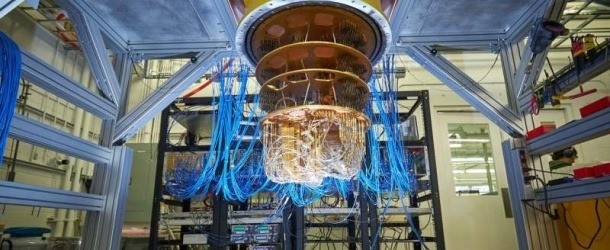10 difficult problems quantum computers can solve easily

(AnalyticsInsights) Apoorva Bellapu provides a look at 10 difficult problems quantum computers can solve easily. IQT-News summarizes below:
Quantum Encryption: With quantum computing in place, the person disrupting the particle cannot get usable information, and the recipient can be alerted to the eavesdropping attempt.
Simulation of quantum systems: What cannot go unnoticed, is the fact that even if a few qubits of quantum systems are to simulate, it’d be extremely expensive when it comes to the resources required.
ab initio calculations: Classical computing is of very little help when the task to be accomplished pertains to ab initio calculations. With quantum computing in place, you have a quantum system simulating another quantum system.
Solving difficult combinatorics problems: The algorithms within quantum computing aim at solving difficult combinatorics problems in graph theory, number theory, and statistics.
Supply chain logistics: Logistics is more or less related to a set of problems that cannot be solved using a brute force algorithm. Rather than meeting the set objectives via numerous individual operations, quantum computers do it in the easiest manner possible.
Optimization: One of the most difficult problems that quantum computers can solve is – “optimization”. One major aspect of this includes determining optimal weights for neural nets, so a classifier would be as good as it can be on a set of training data.
Finance: Economics is associated with numerous sophisticated models of market behaviour in the hope of predicting important and disruptive events. With quantum computing, we can now process and retrieve data from incredibly large data sets and make predictions about markets that can have an outsized global impact.
Optimization: One of the most difficult problems that quantum computers can solve is – “optimization”. One major aspect of this includes determining optimal weights for neural nets, so a classifier would be as good as it can be on a set of training data.
Data Analysis: The growing data is posed as one of the biggest challenges for classical computing. This is where quantum computing came into play. Quantum computers have the ability to process large data sets in record time.
Weather Forecasting: With many environmental variables in place, it becomes quite difficult for classical computers to forecast weather. However, a quantum computer can not only forecast near-term weather patterns well but also predict the effect of climate change.
Sandra K. Helsel, Ph.D. has been researching and reporting on frontier technologies since 1990. She has her Ph.D. from the University of Arizona.



















